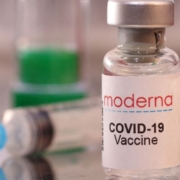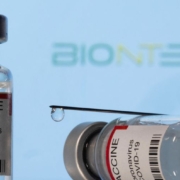The BA.2 subtype of the Omicron coronavirus variant appears to have a substantial growth advantage over the currently predominant BA.1 type, Britain’s UK Health Security Agency said on Jan. 28.
Merck & Co. Inc. and partner Ridgeback Biotherapeutics said on Jan. 28 six lab studies showed their experimental oral COVID-19 drug molnupiravir was active against the fast-spreading Omicron variant.
Studies Forge On as Omicron Surges and More COVID-19 News
BNT162b2 (Pfizer and BioNTech), Clinical Trials, Coronavirus Disease (COVID-19) Pandemic, COVID-19 Studies, COVID-19 Therapeutics, COVID-19 Vaccines, Data, Hospitalized COVID-19 Patients, Inhaled Formulations, Janssen COVID-19 Vaccine (J&J), mRNA-1273/Moderna COVID-19 Vaccine (Moderna), New England Journal of Medicine, Omicron (B.1.1.529) (South Africa), R&D, Therapeutics, VentilatorsIn the last two years, the sheer volume of scientific research focused on COVID-19 has been astounding: thousands of clinical studies, dozens of vaccines and new compounds, and hundreds of approved drugs tested for efficacy. More studies are still being run, especially in light of the Omicron surge and the virus’ ability to evolve.
Moderna starts trial for Omicron-specific booster shot
Adults 18 & Older, BNT162b2 (Pfizer and BioNTech), CDC, Clinical Trials, Coronavirus Disease (COVID-19) Pandemic, COVID-19 Vaccines, Messenger RNA (mRNA) Vaccines, Moderna, mRNA-1273/Moderna COVID-19 Vaccine (Moderna), Omicron (B.1.1.529) (South Africa), Pfizer, R&DModerna Inc. started a mid-stage study, testing a booster dose of the company’s COVID-19 vaccine specifically designed to target the Omicron coronavirus variant, a day after rival Pfizer Inc. launched a similar trial.
Pfizer, Moderna shots safe during in vitro fertilization; healthy gut bacteria may help prevent long COVID
Bacteria, BNT162b2 (Pfizer and BioNTech), Clinical Trials, COVID-19 cases, COVID-19 Studies, COVID-19 Test Kits, COVID-19 Vaccinations, COVID-19 Vaccines, Covid-19 Variants, Gut microbes, In-Vitro Fertilization, JAMA, Long COVID, Microbiome, mRNA-1273/Moderna COVID-19 Vaccine (Moderna), Myocarditis, Portable PCR COVID-19 Test Kits, R&D, SARS-CoV-2 virus, Small IntestineCOVID-19 vaccines using mRNA technology do not affect fertility outcomes during in-vitro fertilization (IVF), researchers found. Other new findings suggest the bacteria living in the small intestine may contribute to the risk for long COVID after infection with SARS-CoV-2.
New cases of COVID-19 in the Americas in the past week were the highest since the pandemic began and the very contagious Omicron variant has clearly become the predominant strain, the Pan American Health Organization said on January 26.
About 35% of People Who Received Placebo in Vaccine Trials Report Side Effects and More COVID-19 News
Adverse Events, BNT162b2 (Pfizer and BioNTech), Business, CDC, Clinical Trials, COVID-19 Antibodies, COVID-19 forecasts, COVID-19 Studies, COVID-19 Vaccines, Harvard Medical School, Intensive Care Units (ICUs), JAMA, Janssen COVID-19 Vaccine (J&J), Johnson & Johnson, Long COVID, mRNA-1273/Moderna COVID-19 Vaccine (Moderna), Nature Communications, Omicron (B.1.1.529) (South Africa), Placebo, R&D, Side Effects, The NetherlandsAccording to a recent study conducted by researchers at Harvard Medical School and Beth Israel Deaconess Medical Center, 76 percent of the adverse side effects (such as fatigue or headache) that people experienced after receiving their first COVID-19 vaccination were also reported by participants who received a placebo shot.
An appeals court judge on Jan. 25 granted a stay in an appeal over mask mandates in New York, keeping the rule in effect during the legal process, New York Attorney General Letitia James said.
BioNTech said the company and partner Pfizer may not be able to stick with their plan to launch an Omicron-targeting vaccine by the end of March 2022, depending on how much clinical trial data regulators will require.
The Omicron variant appears to result in less severe COVID-19 than seen during previous periods of high coronavirus transmission including the Delta wave, with shorter hospital stays, less need for intensive care and fewer deaths, according to a new U.S. study.










